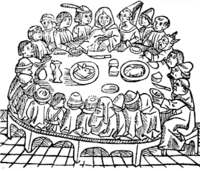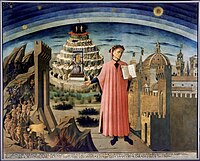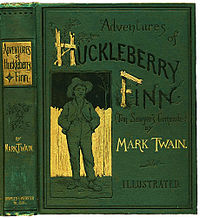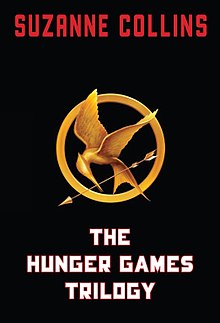-
Use Cases
-
Resources
-
Pricing
Línea de Tiempo Sobre Las Épocas Literarias Timeline
(Ancient times to the Present)This timeline showcases the various epochs and literary movements throughout history.
Ancient Literature
The Epic of Gilgamesh
2100 BCE
% complete
The Epic of Gilgamesh, one of the earliest surviving works of literature, is written in cuneiform script on clay tablets. It tells the story of Gilgamesh, a legendary king of Uruk, and his quest for immortality, exploring themes of friendship, mortality, and the search for meaning.
Image source: Epic of Gilgamesh

The Iliad and The Odyssey
800 BC - 799 BC
% complete
The Iliad and The Odyssey, attributed to the ancient Greek poet Homer, are epic poems that form the foundation of Western literature. The Iliad recounts the Trojan War, while The Odyssey follows the adventures of Odysseus as he journeys home from the war, exploring themes of heroism, fate, and the human condition.
Image source: Homer

Medieval and Renaissance Literature
The Canterbury Tales
1300 - 1399
% complete
Written by Geoffrey Chaucer, The Canterbury Tales is a collection of stories told by a diverse group of pilgrims traveling to the shrine of Thomas Becket in Canterbury Cathedral. It provides a vivid portrayal of medieval society, its social classes, and moral values.
Image source: The Canterbury Tales

The Divine Comedy
1308 - 1320
% complete
Written by Dante Alighieri, The Divine Comedy is an epic poem that describes the journey of the protagonist through Hell, Purgatory, and Heaven. It explores themes of sin, redemption, and the nature of the afterlife, and is considered a masterpiece of Italian literature.
Image source: Divine Comedy

Hamlet
1600
% complete
Written by William Shakespeare, Hamlet is a tragedy that explores themes of revenge, madness, and the complexity of human nature. The play follows Prince Hamlet's quest to avenge his father's murder and the moral dilemmas he faces along the way.
Image source: Hamlet

Don Quixote
1605
% complete
Written by Miguel de Cervantes, Don Quixote is a novel that satirizes chivalric romances and explores the contrast between illusion and reality. The story follows the adventures of the delusional knight-errant Don Quixote and his loyal squire Sancho Panza.
Image source: Don Quixote

Enlightenment and Romanticism
Pride and Prejudice
1813
% complete
Written by Jane Austen, Pride and Prejudice is a novel that satirizes social conventions and explores themes of love, marriage, and class in Regency England. The story follows the spirited Elizabeth Bennet as she navigates the complexities of relationships and societal expectations.
Image source: Pride and Prejudice

Frankenstein
1818
% complete
Written by Mary Shelley, Frankenstein is a Gothic novel that delves into the ethical implications of scientific advancement and the nature of humanity. The story follows Victor Frankenstein, a scientist who creates a grotesque creature and struggles with the consequences of his actions.
Image source: Frankenstein

Madame Bovary
1856
% complete
Written by Gustave Flaubert, Madame Bovary is a novel that explores the dissatisfaction and yearnings of its protagonist, Emma Bovary, trapped in a stifling marriage. The novel is notable for its realistic portrayal of ordinary life and its examination of the consequences of romantic fantasies.
Image source: Madame Bovary

Modern and Contemporary Literature
The Adventures of Huckleberry Finn
1884
% complete
Written by Mark Twain, The Adventures of Huckleberry Finn is a novel that addresses themes of racism, morality, and the search for freedom. The story follows Huck Finn, a young boy who embarks on a journey down the Mississippi River with Jim, an escaped slave.
Image source: Adventures of Huckleberry Finn

Ulysses
1922
% complete
Written by James Joyce, Ulysses is a novel that employs stream-of-consciousness narrative and experimental writing techniques. Set in Dublin, Ireland, on a single day, it follows the lives of several characters, exploring themes of identity, sexuality, and the human condition.
Image source: Ulysses (novel)

1984
1949
% complete
Written by George Orwell, 1984 is a dystopian novel that depicts a totalitarian society controlled by Big Brother. It explores themes of government surveillance, propaganda, and the erosion of individual freedom, leaving a lasting impact on the genre of dystopian literature.
Image source: Nineteen Eighty-Four

One Hundred Years of Solitude
1967
% complete
Written by Gabriel García Márquez, One Hundred Years of Solitude is a novel that blends magical realism with historical events. It chronicles the Buendía family's experiences in the fictional town of Macondo, exploring themes of time, memory, and the cyclical nature of life.
Image source: One Hundred Years of Solitude

Harry Potter and the Philosopher's Stone
1997
% complete
Written by J.K. Rowling, Harry Potter and the Philosopher's Stone is the first book in the Harry Potter series. It introduces readers to the magical world of Hogwarts School of Witchcraft and Wizardry and follows Harry Potter's journey as he discovers his true identity and confronts the dark wizard Lord Voldemort.
Image source: Harry Potter and the Philosopher's Stone

The Hunger Games
2008
% complete
Written by Suzanne Collins, The Hunger Games is a dystopian trilogy set in a post-apocalyptic society. It follows the story of Katniss Everdeen as she participates in the brutal Hunger Games, a televised fight to the death, and becomes a symbol of rebellion against the oppressive Capitol.
Image source: The Hunger Games

Key Facts
- The Ancient Period consists of works written in ancient civilizations such as Mesopotamia, Egypt, and Greece.
- The Medieval Period focuses on the literary works of the Middle Ages, characterized by religious themes and chivalry.
- The Renaissance Period illustrates the rebirth of knowledge and culture, with significant contributions from writers like Shakespeare.
- The Enlightenment Period emphasizes reason and logic, rejecting traditional authority and promoting scientific and intellectual progress.
- The Modernist Period challenges traditional literary conventions, exploring themes of disillusionment and fragmentation in the face of a changing world.
Source
This Línea de Tiempo Sobre Las Épocas Literarias timeline was generated with the help of AI using information found on the internet.
We strive to make these timelines as accurate as possible, but occasionally inaccurates slip in. If you notice anything amiss, let us know at [email protected] and we'll correct it for future visitors.
Create a timeline like this one for free
Preceden lets you create stunning timelines using AI or manually.
Customize your timeline with one of our low-cost paid plans
Export your timeline, add your own events, edit or remove AI-generated events, and much more
Free
$
0
free forever
No credit card required.
Basic
$
10
/month
billed annually
Cancel anytime.
Pro
$
16
/month
billed annually
Cancel anytime.
Common Questions
Can I cancel anytime?
Yes. You can cancel your subscription from your account page at anytime which will ensure you are not charged again. If you cancel you can still access your subscription for the full time period you paid for.
Will you send an annual renewal reminder?
Yes, we will email you a reminder prior to the annual renewal and will also email you a receipt.
Do you offer refunds?
Yes. You can email us within 15 days of any payment and we will issue you a full refund.
What if I have more questions?
Check out our pricing docs or send us an email anytime: [email protected].